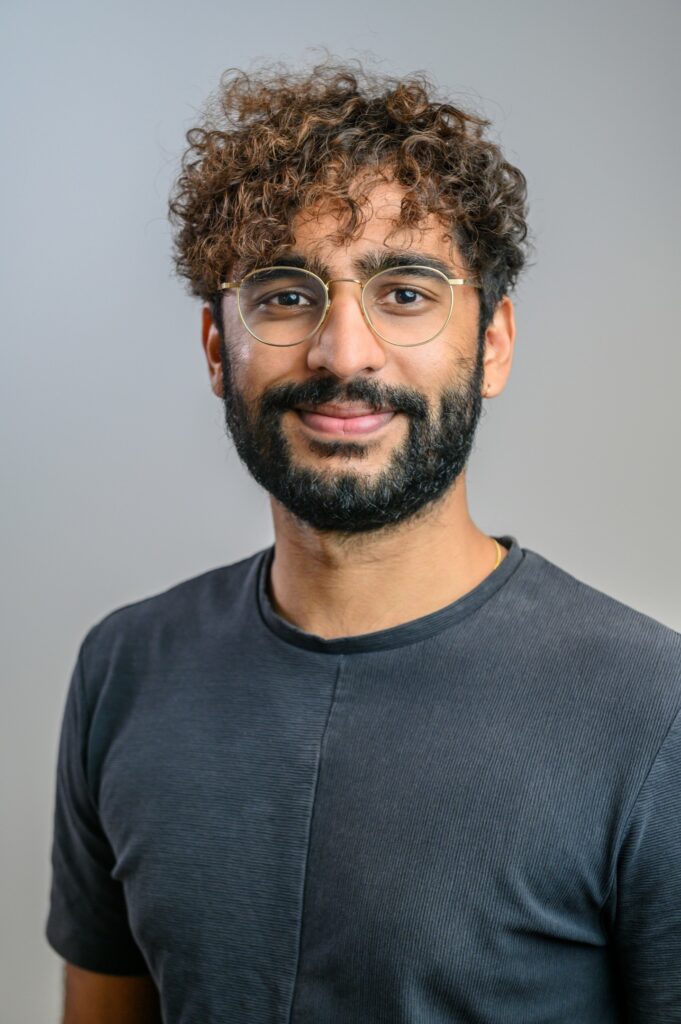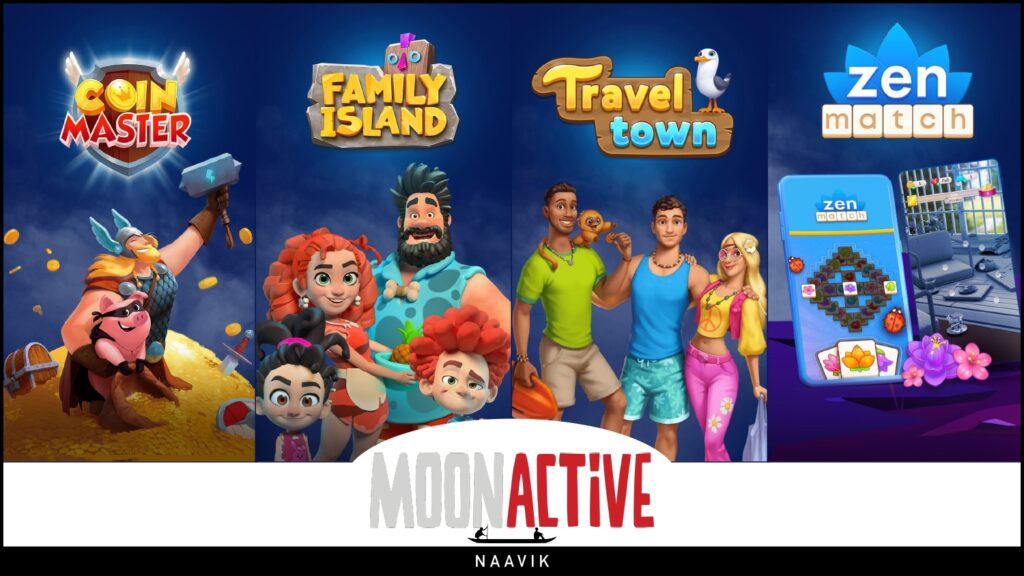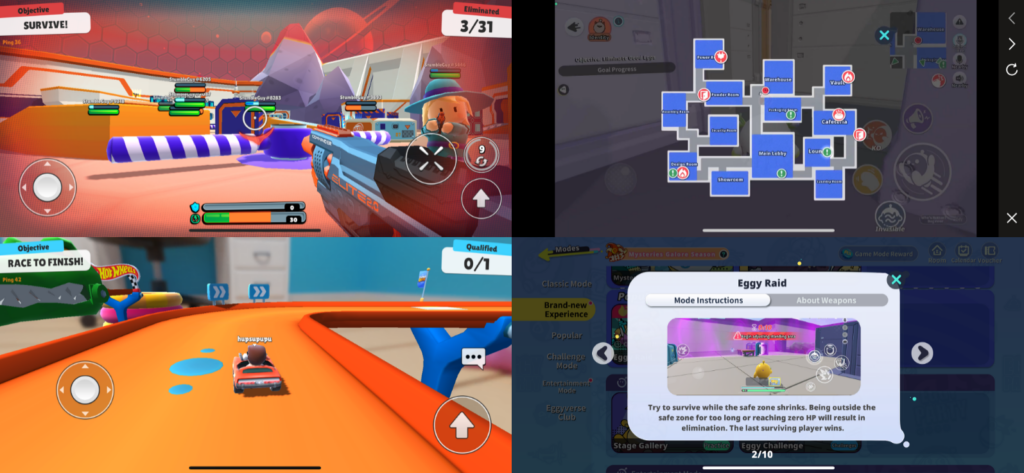Hi everyone — welcome to another issue of Naavik Digest. If you missed our last one, be sure to check out our breakdown of game streaming platform Kick and how it stacks up against Twitch.
In this issue, we ask different gaming VCs how they’re thinking about the current climate in game investing, what they’re spending their time on, and what makes them excited for the future.
The Future of Player Betting

Zach Dixon is the co-founder and COO of Player’s Lounge, an app and service that allows players to bet on themselves across games like FIFA, Madden, NBA2k, Apex, and Valorant. Many of us know the story of Skillz, the real-money gaming and esports company that was building betting rails for casual mobile games, and may be dubious of how player betting fits into the gaming ecosystem.
However, in this episode, we discover the nuances between "head-to-head" and "against-the-house" betting, the business models associated with them, and the operational challenges that come with the two formats. Those include how to verify outcomes, the function of prop bets, what betting in-game currency “means,” and how to balance bets to skill payouts. We also cover some of the distinctions between “betting” and “gambling." To learn more, you can check out both Player’s Lounge’s products on sports here and on Valorant and Apex Legends here.
As always, you can find the Naavik Gaming Podcast on YouTube, Spotify, Apple Podcasts, Google Podcasts, our website, or anywhere else you listen to podcasts. Also, remember to shoot us any questions here.
#1 How VCs Are Thinking About Gaming in 2023
By Fawzi Itani, Naavik Business Lead

Our friends at Konvoy Ventures put out an excellent Q2 2023 report on the gaming industry that deftly analyzes the financial macro trends of the market — if you haven’t read it yet, definitely do! From a market perspective, it was most interesting to see that VC deals had dropped from 377 to 194 deals year over year. According to Konvoy, funding into gaming companies dropped $290 million (38%) from last quarter, primarily driven by a lack of growth deals. This also represents nearly $1 billion less invested dollars over the same time period last year.
While this is reflective of the broader VC landscape, I took the opportunity to ask a bunch of gaming VCs their views on the market and their investment philosophies to better understand the path forward for gaming startups. There’s obviously a lot to dig into, but my intention was to showcase the diversity of thoughts and opinions across various stages, partnerships, and investment strategies.
Moritz Baier-Lentz / Partner & Head of Gaming / Lightspeed Venture Partners

Q: How have you / your VC adapted to the changing climate in games investing these past few years?
Moritz:“Past few years" seems like a generous term to use here! At the beginning of 2020 — when I joined BITKRAFT Ventures — we were a firm with ~$100 million in capital and, with that, one of the largest specialists. Within three years, the total assets under management of dedicated gaming funds or practices has more than 10x'd per my count, to now over $5 billion in money raised to support game studios, gaming platforms, and interactive technology companies.
Gaming has fared well throughout the market adjustment of the past 12 months. Both TAM and number of global players continue to climb, fueled by strong generational and technological tailwinds. While dollar volume of funding is down, number of deals actually is still holding up with 2021 and 2022 highs at the moment — driven by a combination of continued quality teams coming to market and dry powder looking to deploy. And by the way, the NASDAQ, as of today, is back ~2/3 from the October 2022 trough to the November 2021 peak, so it might be worth starting to think whether we need to adjust the "new economic climate" narrative. Public valuations are now back to "summer of 2021" levels, the self-proclaimed peak of gaming VC.
Q: What areas are you spending a lot of time in? Why?
Moritz: In addition to game studios started by lead designers and lead producers of blockbuster AAA franchises, we are spending most of our time on interactive technology. For half a century, video games have profoundly shaped consumer behavior and acted as a catalyst for significant technological innovation. As an ever-increasing time of our lives is spent in immersive virtual worlds, gaming is expected to continue its pivotal role in how we play, work, and connect. This doesn't just include AI, but also core innovations in 3D, digital assets, game engines, developer tools, AR/VR, and web3.
So many life-changing technologies were born in gaming, and I truly believe it's because (1) interactive experiences are often pushing the boundaries of what's technologically possible and (2) play and innovation are inevitably intertwined (play is "safe exploration" and work is "exploitation of learned patterns," not too indifferent to how some of AI works). The best-scaled example is probably Nvidia: originally built to perform complex 3D calculations in video games, now our most powerful computational engine and the backbone of all AI, blockchain, 3D, and so much more.
Q: What type of games excited you to fund? And/or where in the infra/tooling layer are you seeing interesting opportunities?
Moritz: On the game studio side, we have a high bar: In the last 18 months, we've primarily founded teams with previous lead designers or lead producers on games that grossed at least $250 million per year. Deploying (and returning) a $6.5B fund, we don't look for founders who want to build "just games." We need the ones who are daring and experienced enough to build empires. And despite popular narrative, that intake goes well beyond ex-Riot, ex-Blizzard, and ex-Epic Games candidates!
Q: How do you think about being a value-add/differentiator as a games VC?
Moritz: If I were a gaming founder, I'd look for three things: A partner with the right (1) knowledge, (2) support, and (3) culture. On (1) authentic industry expertise: Lightspeed has successfully invested in gaming and interactive technology for almost two decades — from early wins like Playdom and Snap to recent breakouts like Epic Games, Polygon, and Tripledot Studios. Our core team includes a former No. 1 ranked professional player, a game studio founder, and a gaming-focused hedge fund analyst.
On (2), we're a global, multi-stage investment fund with $29B+ in assets under management, 13 global offices, and over 190 IPOs and acquisitions to date. Great ideas originate and reach across the world; that’s why Lightspeed operates globally. Backed by respected and mission-aligned institutions, we solve for “doing the right thing” with a rare ability to support our portfolio companies with the capital, talent, and network throughout their journey to greatness. We helped many founders achieve worldwide success, and we vividly remember what it looked like at the outset of our partnership.
And (3) culture and values: In an industry that glorifies individual stars and their egos, we believe that true partnerships build more repeated success. Our team of partners invests jointly from a shared family of funds that bridges the traditional borders and limits of sectors and geographies. We think reputation is built from the inside out. That’s why we practice empathy not only with our founders, but also within our partnership. And I love to build syndicates, as seen in our announcement this week with Gardens.
Lia Zhang / Investor / Makers Fund

Q: How have you / your VC adapted to the changing climate in games investing these past few years?
Lia: Makers was one of the first venture funds that is focused and dedicated to games. It’s been amazing to see how much more interest and funding has come into the space over time. While funding levels are not at the same peak high during COVID times, they are significantly higher than before. To stand out, we’ve stayed principled and form our own internal theses around where the industry is moving and how we can invest behind different trends rather than following areas that are hot. This has actually led us to invest more in companies within our own portfolio this year.
Q: What areas are you spending a lot of time in? Why?
Lia: I work closely with a few awesome and innovative games teams like End Game, Odyssey Interactive, Noodle Cat Games, and with teams that touch UGC like Medal on the game clipping side and Blueberry on digital fashion. Most of my time is spent working with them and harnessing relationships that can support them, whether it’s with investors, strategics, or even potential hires. Naturally, companies I’m exploring new investments in also come across these spaces.
Q: What type of games excited you to fund? And/or where in the infra/tooling layer are you seeing interesting opportunities?
Lia: Excited about game creators that are interested in pushing and blending genres. On the infra layer, I’m very curious to see how more indie developers and studios begin to adopt Godot, the open source game engine that is predominately used by solo/duo devs and has in the last year launched 3D capabilities. Always excited to chat about digital fashion and UGC players within Roblox, Zepeto, and UEFN.
Q: How do you think about being a value-add/differentiator as a games VC?
Lia: I think the absolute baseline is you have to be playing new games. Games in different genres, games that are multiplayer/co-op, games that are narrative/storytelling focused, and everything in between that interests you. It gives you a better understanding of a founder’s vision when they speak about the gameplay and it helps you see the innovation of games in real-time.
My view is also that as an investor, it’s best to be “full-stack,” especially if you focus on a genre. Full-stack meaning everything from discovering new opportunities, leading and executing on investments, and then heavily supporting portfolio companies in a way where you are able to earn the trust of founders and long-term be an expert in their space. To me, there is still so much abundant capital that to be concentrated and focused on support, from hiring to stepping in for function areas where they have a gap, is more high impact and meaningful than always looking for the next big thing.
Sikander Chahal / Principal / Transcend Fund
Q: How have you / your VC adapted to the changing climate in games investing these past few years?
Sikander: Transcend's approach has always been highly selective, and that hasn't changed. Our investments continue to be driven through our audience-first lens. General cooling in the market has allowed us to spend more time with teams and discuss the right partnership leading to better alignment and quality.
Q: What areas are you spending a lot of time in? Why?
Sikander: A lot more time researching and speaking to industry experts to drive thesis crafting — especially to surface non-intuitive areas. The best deals come in the most surprising forms, and we want to be as prepared as possible.
Challenges of deal structuring for hit games are non-trivial. There are several aspects that require long-standing operator experience to recognize its importance. We put a great amount of thoughtfulness into how everyone's goals are best aligned and structure deals to align those incentives. Our portfolio companies under Prytania Media are a great example of how our long-term approach leads to better outcomes.

Q: What areas do you think are overrated and underrated? Why?
Sikander: Overrated: Pure F2P as a given monetization strategy. It’s critical to understand the best fit given the market, company phase, and audience expectations, and it would be a major strategic error to not consider every option.
Underrated: The experience of 0 to 1 versus big logos. Talent from the beloved names we all know is usually exceptional, however, it's no secret there's bias. Prior experience from ground zero to success, even at a comparatively lesser-known place, really shines through for us.
Q: What type of games excited you to fund? And/or where in the infra/tooling layer are you seeing interesting opportunities?
Sikander: We're always looking for teams creating truly differentiated, expansive, replayable experiences for large or underserved audiences. We've been super excited to fund some of the best teams across social multiplayer with incredible potential to establish new franchises that are truly cross-platform — including VR/XR. Super hyped at the moment for one of our earliest investments, Singularity 6, which has just announced its beta and truly exemplifies our thesis. Go sign up!
Many of these have been driven not by category but by unique development platform approaches, enabling communities and super fandom, UGC potential, business models, new primitives, and wider ecosystem strategies.
Q: How do you think about being a value-add/differentiator as a games VC?
Sikander: It comes down to delivering the best guidance and connecting not just the right people but when to involve them. That means being able to tap into a comprehensive network across the entire entertainment ecosystem both horizontally in each category, as well as vertically from veterans with past success to the doers currently in the market. The decades of operator experience from our GPs across every major platform, business model, and company stage certainly makes this easier! Gardens recently raised an incredible $31.3M Series A, and as lead seed investors, this value add that culminated over two years has played out in real-time.
Support in the good times is great, but being ready to ride together through the tougher times is arguably as impactful. Not only should a games VC create a force multiplier on the successes, but also be a frank but constructive partner and sounding board when course correction is needed. Balancing taking early-stage creative risks versus market validation is exceptionally hard pre-launch. Transcend's DNA being rooted in audience-first, direct games, and investment experience orients us to increase as much as possible the surface area for success.
Phylicia Koh / Partner / Play Ventures

Q: How have you / your VC adapted to the changing climate in games investing these past few years?
Phylicia: We still 100% believe that gaming is the form of entertainment for generations to come and are still investing. Of course, we are going through so many shifts in gaming right now and it’s hard to tell where things will land, and when they might settle down. From a portfolio point of view, this means we diversify our bets across platforms (mobile, PC, console) and business models. We also look for teams that think about how they manage platform and distribution risk. We still adhere to our core principles, which have served us well in both bull and bear markets: We invest in founders with solid experience in gaming, and we exercise discipline in our valuations and investment decision-making.
Q: What areas are you spending a lot of time in? Why?
Phylicia: Given the challenges with the mobile gaming ecosystem, we're spending more time looking at cross-platform games of all genres, more radical tooling/infrastructure plays that hope to disrupt the status quo in distribution of games, and how AI (beyond AI-generated art) can improve how games are built, optimized, and monetize. We're also looking more closely at the intersection of gaming with “lifestyle” (dating, relationships, mental wellness).
Q: What type of games excited you to fund? And/or where in the infra/tooling layer are you seeing interesting opportunities?
Phylicia: As an early-stage investor, we spend a good amount of our time helping our founders understand and navigate current markets. On the investment side, we spend time looking at opportunities in genres and spaces less explored. Unsexy evergreen genres could be one, innovation in genres is another. For example, are there proven genres and games where gameplay hasn’t evolved alongside players’ lifestyles and life stages, creating opportunity gaps? We also like to think laterally about where gaming can go — education, lifestyle, wellness. In today’s market, where nothing can be taken for granted, we’re actively thinking about and challenging our own assumptions of what a successful gaming content or tooling/infrastructure company needs and looks like.
Q: How do you think about being a value-add/differentiator as a games VC?
Phylicia: Play’s DNA stems back to our founding partners having been games entrepreneurs themselves. We know it takes blood, sweat, tears, and luck to build a successful company, and we want to help founders improve the odds. We’re not trying to be backseat game designers, but really helpful partners. We do that through knowledge and experience sharing within the Play team, facilitating sharing by companies with the broader Play portfolio, and any other areas that a founder might need help with at a particular stage.
Rome wasn’t built in a day, and neither is Play; we’re looking to add to the core team to help us be better. We’re actively looking for a Head of Events and a Head of Talent to join us! If anyone is interested, please get in touch!
Jeffrey Forrest / Investor / Lakestar

Q: How have you / your VC adapted to the changing climate in games investing these past few years?
Jeffrey: The games environment has always been attractive to us from an investment perspective. It is huge, growing at a fast pace, and is arguably the first consumer sector that has always quickly implemented new technologies. Inevitably, the market moves rapidly, and VCs need to move according to this pace. Being thesis-led, we always start from a macro view of the environment, and we periodically discuss and evolve our thesis depending on external catalysts, which in recent years have been IDFA, web3, and generative AI.
The changing climate has brought about other shifts in the investment process. As capital inflows into the gaming ecosystem have calmed down over the past 18 months, we have had to think more deeply about the metrics that our portfolio companies will need to raise a subsequent round. We also encourage our portfolio companies to fundraise in order to ensure greater levels of runway. Where 12-18 months may have been acceptable in 2021, we now aim for our portfolio companies to raise for at least 24 months of runway.
Q: What areas do you think are overrated and underrated? Why?
Jeffrey: We believe that AI is overrated in some areas and underrated in others. To be clear — it’s one of the biggest platform shifts that we have seen since the internet, and there is tremendous opportunity in the space. But as for any new technology hype, we are seeing a lot of capital chasing deals, many of which currently aren’t defensible, at valuations that would make 2021 blush.
We think that two of the areas that are potentially underrated in gaming are ad tech and VR. We’re seeing interesting opportunities in new ad formats, which could fundamentally change how games are monetized, and new solutions that could help mitigate the impact of IDFA. VR, which has been perennially “five years away,” looks to be turning a corner. The install base and time spent gaming continues to improve, and we believe the Apple headset could be the catalyst that the industry needs to take off in an even more meaningful way.
Q: What type of games excited you to fund? And/or where in the infra/tooling layer are you seeing interesting opportunities?
Jeffrey: A core thesis at Lakestar is investment in games that can become great social networks, binding players together and creating meaningful relationships. While many people would take this to mean “MMO,” it doesn’t have to be! We see UGC platforms, session-based games, and many other categories fostering great social experiences. We believe in backing great founders with bold ideas who will create the next categories of social games.
Within infrastructure, we have been very interested in the major technological shifts and the opportunities that these present within each field. Categories like AI, XR, and blockchain are key examples of these. Each category represents a massive shift in how games are made and how players engage with games, and we are excited to invest in the infrastructure layer that makes it possible.
Q: How do you think about being a value-add/differentiator as a games VC?
Jeffery: There are a few areas where we seek to add value to our gaming portfolio companies. Our gaming team helps with product expertise from our time in the industry. Mika Salmi, head of the gaming thesis, is a four-time founder who has been helpful in shaping where founders prioritize their time as they grow.
But being a large multi-stage and multi-thesis fund allows us to tap into the other branches of Lakestar, with a diverse array of partners with deep expertise in go-to-market operations, tech infrastructure, AI, deep tech, regulatory concerns, and several other areas. Ultimately, we believe we are able to help portfolio companies grow from great game makers to great company builders and support them as they become established.
Taylor Hurst / Principal / Konvoy Ventures
Q: How have you / your VC adapted to the changing climate in games investing these past few years?
Taylor: The most important thing we can do is focus on our long-term thesis within gaming. It’s very easy to let short-term hype cycles change the way you think and push you off course. In the past and the future we will continue to see new “hype cycles” that will push investors to chase in the short- to intermediate- terms and you just have to stay focused on what you believe in but also be willing to allow new information to change perspectives. Rarely is anything in the short term enough to shift views 180 degrees, but a few degrees at a time is completely normal.

Q: What areas are you spending a lot of time in? Why?
Taylor: XR, and more specifically augmented reality. It has the potential to change for the better not only the way we interact with each other but also the physical world in ways technology hasn’t before. It will enhance the value an individual can create in any moment while also allowing for businesses to offer more value and better experiences. I’m really interested in the tooling/infrastructure layers that will enable XR-native experience creation. Experiences (games and apps) that aren’t possible through other mediums.
Q: What areas do you think are overrated and underrated? Why?
Taylor: Underrated — XR. I think it’s very easy to write off due to the lack of clarity for what it can and will provide. Easy to write off markets and opportunities that are hard to understand.
Overrated — Web3 gaming infrastructure. Gaming-specific infrastructure just adds another barrier for consumers. Rarely does it provide more value, besides curation and maybe discovery, than generalist platforms. I believe most web3 games will choose the most popular consumer infrastructure and not the infrastructure that is gaming-specific.
Q: How do you think about being a value-add/differentiator as a games VC?
Taylor: First and foremost, I’m a gamer through and through. I work all day in games and go home and play games… every day. I’ve seen the cycles over the last 20 years and I think that knowledge is important. Besides that I usually joke that I’m a fractional BD/marketing director for all companies. I’m always learning and talking to different industry experts and either using that information to help our portfolio companies or building relationships that will allow for our portfolio companies to open as many doors as possible. We also have put tons of effort into the platform side of our firm (our Head of Platform, Dhinuka, is a rockstar).
Sponsored by Coda Payments: More Players. More Payers. Less Lift

Since 2011, Coda has been the streamlined partner for secure, compliant monetization solutions and scalable, direct-to-consumer expertise across gaming, live streaming, and more. Trusted by some of the biggest names in publishing, including Activision Blizzard, Riot Games, Moonton, Garena, Tencent, and Tinder.
Coda offers both B2C and B2B solutions and products, such as Codashop and Codapay, helping partners grow revenue, profit margins, and customer engagement in 60+ countries and territories with ease.
Wherever you are in your go-to-market and monetization strategies, let Coda do the heavy lifting so you don’t have to.
#2 Gaming Market Update: July 7th - 14th
ByMario Stefanidis, CFA, Naavik Contributor
- For the week ending July 14th, 2023: The average return for gaming companies tracked by Naavik with a market capitalization exceeding $500 million was 3.7%. The S&P 500 returned 2.4% and the Nasdaq-100 returned 3.5%. Full access to the Naavik Gaming Company universe is available here.
- The rally resumed in full swing after a brief pause, with highly shorted, non-profitable technology stocks taking the lead. In gaming, last week marked one of the best performances for the cohort of 2023. Kakao (KRX: A293490) and Krafton (KRX: A259960) reversed their losses after Korean regulators opened antitrust investigations into domestic publishers.
- Before markets opened on July 17th, Activision Blizzard (NDAQ: ATVI) was removed from four Nasdaq indexes. This includes the Nasdaq-100 Index, the Nasdaq-100 Equal Weighted Index, the Nasdaq-100 Ex-Tech Sector Index, and the Nasdaq-100 ESG Index. Nasdaq deemed the acquisition of Activision Blizzard by Microsoft as “highly probable” due to the FTC losing its preliminary injunction case against Microsoft last week.
- Unity (NYSE: U) rose 9.6% after debuting a beta for a new detection solution for voice chat. The software, called Safe Voice, is aimed at identifying toxic behavior using machine learning. The announcement came one day after Microsoft said it would add reactive voice chat moderation to Xbox to let gamers submit minute-long audio clips to Xbox’s safety team for manual review.
- Indian mobile gaming company Nazara Technologies fell -7.3% after the Indian government announced a new 28% tax on online gaming. The act does not discriminate between games of skill and games of chance. Roland Landers, head of the Indian trade body All India Gaming Federation, said the act would “wipe out the entire Indian gaming industry,” which is valued at close to $2 billion, according to The Independent.
Notable Venture Financings
- Mobile development infrastructure platform Embrace raised $20 million in venture funding led by NEA. This comes 1.5 years after its last round, a Series B raise of $45 million that NEA also led. Embrace is run by Eric Futoran, who co-founded Scopely and served as strategic advisor until it was acquired for $4.9 billion by Savvy Games Group in April 2023. Embrace provides tools for developers of a mobile app or game to improve performance and resolve issues quickly across the tech stack. SDKs are available for iOS, Android, React Native, Unity, and Flutter.
- Binance Labs has committed $15 million to Xterio, which dubs itself a “free-to-play-and-earn game developer.” As part of the partnership, Xterio’s token XTER will become part of the BNB Chain ecosystem. Xterio plans on developing numerous cross-platform games in addition to its current slate, while also developing an AI toolkit that generates 2D and 3D assets. The company operates an NFT loyalty system called XSoul, which entitles owners to additional benefits within its games.
- Infinite Canvas raised $6 million in funding to create new gaming experiences using generative AI. The round was led by BITKRAFT with participation from HBSE, Warner Music Group, J Ventures, as well as numerous existing investors. The company was founded by Sebastian Park, venture partner at BITKRAFT, and Tal Shachar, who was formerly CDO at Immortals. Infinite Canvas currently features UGC on platforms like Roblox and Fortnite, and is looking to expand elsewhere. The company also recently launched a Discord bot called CreatureCraft, which allows players to create and collect companions generated by AI via prompts.
- Gamercraft, a skill-based gaming matchmaking platform, raised $5 million in seed funding led by the co-founders of Alienware. The platform features tournaments in games like Dota 2, League of Legends, and Teamfight Tactics, utilizing a proprietary scoring model based on performance within a player’s specific role. Entry fees and payouts are handled by AWS Quantum Ledger, which provides a cryptographically verifiable log of transactions. The funding will be used to expand to new genres and build out the company’s marketing capabilities.
- Note that we covered the Gardens Series A round last week, hours after the embargo lifted.
Notable Strategic Investments

- Lucid Games was acquired by Tencent subsidiary Lightspeed Studios for an undisclosed sum. The British video game developer, which is behind recent titles like 2021’s PlayStation 5 exclusive title Destruction AllStars, has about 170 employees. The studio has also been working alongside Rare on Sea of Thieves, in a partnership inked earlier this year. Lightspeed itself is co-developer on AAA titles such as PUBG Mobile and Apex Legends Mobile, and this acquisition provides Lightspeed with console development capabilities. Lucid Games stated that it would “continue to enjoy full independence” in development, while leveraging its acquirer’s “global network and technology capabilities.”
- Cloud Imperium Games acquired its Star Citizen co-development partner Turbulent. Turbulent, which is headquartered in Montreal, will keep its other current projects and clients, and will continue to operate in French. CIG CEO Chris Roberts highlighted the complementary nature of the acquisition and the shared culture both companies share. Star Citizen has been in development since 2011 and has raised $500 million in crowdfunding. Twelve years later, the game remains in alpha with no release date.
Notable Studio Updates & Partnerships
- EA announced that Cliffhanger Games, a new first-party studio based in Seattle, will be developing a new Black Panther game. The title will be an open-world, third-person, single-player game developed in partnership with Marvel. Former Monolith Productions VP Kevin Stephens is leading the studio, as was announced two years ago before its focus was revealed to the world. Cliffhanger is currently hiring and has open roles for two software engineers, a game designer, and a presentation artist.
- Larry Hryb, better known by his gamer tag Major Nelson, is leaving Xbox after 20 years of service. Major Nelson was a figurehead for the Xbox brand for decades, most recently via The Official Xbox Podcast (formerly Major Nelson Radio) and his Twitter account with over 1 million followers. While Hryb said that it was his decision to “step back,” a report from Geekwire earlier in the week revealed that Microsoft laid off 276 individuals in addition to the 10,000 that were announced in January.
- Dead by Daylight developer Behaviour Interactive is forming a new studio in the U.K. called Behaviour U.K. South. Based in Cornwall, the new studio is Behaviour’s second in the country. Part of the impetus in opening this new operation was to house former AntiMatter Games employees, who were laid off en masse after parent company EG7 closed the studio in May to improve profitability. Wayne Meazza, EVP of Behaviour's Services division, said it was too early to decide what Behaviour U.K. South would work on, though "Antimatter's experience with creating first-person shooters” would be advantageous.
- Sega of America employees at the company’s Irvine, California office have voted to unionize. The union is called the Allied Employees Guild Improving Sega, a backronym of the word AEGIS, and is partnered with the much larger Communications Workers of America. With 212 employees across several divisions, including marketing, games as a service, localization, product development, and quality assurance, AEGIS is the largest multi-department video game union in the country.








